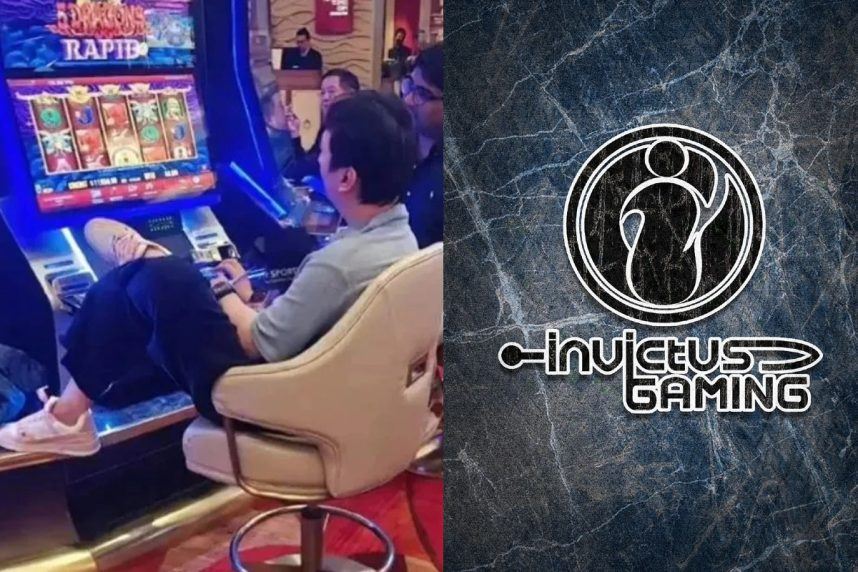Chinese Billionaire Wang Sicong Spotted Gambling in Singapore

Posted on: October 8, 2024, 12:48h.
Last updated on: October 8, 2024, 12:48h.
A Chinese billionaire who is no stranger to the esports world was recently spotted gambling inside Marina Bay Sands in Singapore.

Wang Sicong, 36, is the son of Chinese billionaire Wang Jianlin. The elder Wang is the founder, chairman, and majority shareholder of China’s largest real estate development group, Dalian Wanda.
Born in China’s Dalian, Sicong attended Swiss Cottage Primary School in Singapore before studying philosophy at the United Kingdom’s Winchester College and University College London. He returned to Singapore last month for the F1 Singapore Grand Prix, and during his time in the sovereign city-state, Wang took some time to play Sands’ slot machines.
Social media users shared photographs of the billionaire playing the one-armed bandits. Sicong was reportedly betting small stakes and simply passing time on the casino floor.
The images of the Chinese billionaire at Marina Bay Sands were first shared on Weibo, which is often labeled as the Chinese equivalent of a combination of X and Facebook.
eSports Tycoon
Upon graduating from college, Sicong’s father gifted him CNY500 million (US$71 million) to invest however he pleased. Sicong founded a private equity firm and the esports group Invictus Gaming.
Since Invictus’ founding in 2011, the group has become one of the most successful competitive video gaming enterprises in the world. Invictus currently has six teams competing in Dota 2, League of Legends, CS:GO, Starcraft II, Hearthstone, and PUBG.
According to eSports Earnings, an online database that tracks teams’ earnings, Invictus ranks 14th all-time with winnings north of $15.2 million from 634 tournaments. Invictus’ Dota 2 and League of Legends teams have accounted for the bulk of the winnings, respectively $9.4 million and $4.3 million.
The group’s best result came in 2011 when Invictus’ Dota 2 team won The Invitational Dota 2 Championships. Invictus additionally won the 2018 League of Legends World Championship.
The Invitational and World Championship are among the most prominent tournaments in esports.
Chinese Censorship
Sicong, dubbed “China’s famous scion” by the South China Morning Post, is one of the most followed people on China’s social media channels. An influencer, Wang has faced a myriad of controversies over the past decade, but none generated more headlines than the billionaire’s expressing of concerns about COVID-19 vaccines.
In April 2022, Wang’s Weibo account, followed by 40 million people, was “not viewable” after the social media platform said his comments were in “violation of related laws and regulations.” Before his account went dark, Wang questioned the effectiveness of the Chinese influenza medicine Lianhua Qingwen that was distributed to people in Hong Kong, Shanghai, and the casino enclave of Macau during the COVID-19 pandemic.
China’s censorship of opinions that go against the Communist Party’s official positions is well documented. Known as the “Great Firewall of China” by the Human Rights Watch, an international non-governmental organization headquartered in New York City, the Chinese government closely censors internet communications.
The censoring lends to online gambling, as websites that facilitate slot machines and table games are banned in China. Macau is the only place under Chinese control where casinos are allowed.
Related
I became a millionaire in my 20s but my sports…
Millions wagered, hundreds of thousands in debt and a pending divorce.Joe C, a native of Chicago, fell into the depths of addictive sports gambling at the age o
Strip executive retiring after 3 decades with gambling giant MGM…
A top executive who oversees multiple properties on the Strip, including one of Las Vegas Boulevard’s most recognizable and successful casino-hotels, is
Danish Government’s Success with Gambling Addiction
Gambling addiction is a growing concern worldwide, with many countries struggling to find effective ways to regulate the industry. Denmark, however, has e
UFC 313 Gambling Preview: Will Magomed Ankalaev end Alex Pereira’s…
Alex Pereira is back! On Saturday, Pereira puts his light heavyweight title on the line against Magomed Ankalaev in the main event of UFC 313. Before that, J












